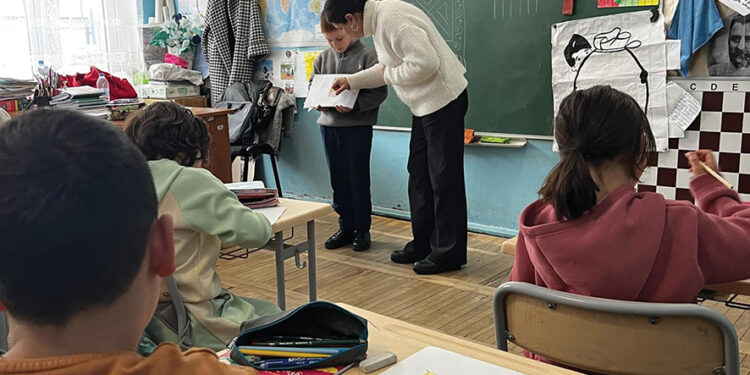Following the raucous collapse of the USSR, Sakartvelo has lived under continuous reforms of its national system of education. By making this trivial but very benevolent statement, I’m not suggesting that something unusual is happening to this nation. No! I am simply posing a straightforward and naïve question: are the ongoing or intended reforms doing, or will they do, any good in general for the enlightenment of our people, especially the youth?
The first serious attempt at reform came about two decades ago when Georgia’s educational system shifted from the Soviet model to the Bologna model of schooling. The Bologna Process, launched in 1999, is an intergovernmental higher education reform process involving 48 European countries and several European organizations. It is dedicated to enhancing the quality and recognition of European higher education systems and improving conditions for exchange and collaboration both within Europe and internationally. The Georgian administration at the time decided to join the process, but not all of the recognized goals have been achieved thus far.
Interestingly, one of the most talked-about changes that resulted from this transition was the replacement of the old evaluation system with the Bologna system. In other words, the five-point grading scale was replaced with a ten-point scale. Our students and teachers have easily adapted to this change, but the real question is whether it has led to better quality and a higher level of education, or whether it was simply a trivial formality. Moreover, it’s worth considering how many people have taken advantage of the opportunity to equalize our local diplomas with Western ones, and whether this process has had any significant impact on Georgia’s economy.
There have been several other attempts to introduce further reforms following the Bologna-Big-Bang, but I suspect that nothing terribly consequential has resulted from these efforts. In fact, every new minister of education (and there have been quite a few) has tried to implement their own version of reform, which is good because they’re striving to make a difference, but their desire to be noticed and appreciated does not mean much. What truly matters is whether their intentions translate from words into action.
One of Georgia’s many former PMs planned to introduce a new law stipulating that 6% of the country’s GDP be allocated for educational purposes. Today it is 3.6%
I recall that one of Georgia’s many former prime ministers had an amazingly effective plan to introduce a new law stipulating that 6 percent of the country’s GDP be allocated for educational purposes. I’m not sure if that bill was ever signed into law, but I am certain that the noble intention of that young head of government has fallen flat. The actual current figure is only 3.6 percent. Meanwhile, no serious change in how we educate generations can take place without a noticeable increase in spending. Without significant and substantial investment, we cannot expect extensive and meaningful educational progress in our schools and universities.
To achieve real educational progress, we need to learn how to teach our young men and women how to think, analyze, evaluate, make decisions, and take responsibility. The hope for effective education is almost non-existent because the national educational process is not in practical harmony with real life; it merely depends on some international educational processes. We must integrate education with our actual economic life, and to do this, high-level research must be conducted into the issue. Otherwise, our economy will suffer from, for instance, an overproduction of lawyers, journalists, political scientists, and diplomats, while we underproduce engineers, chemists, doctors, and geneticists. Who will fill these roles? Our people, of course. But for that to happen, the nation must take the bull by the horns and start using the sweat of its own brow instead of getting overly engaged in political discourse. While political debate is not inherently bad, it cannot be regarded as the best way to ensure one’s livelihood.
On the other hand, one might question whether educational reform is even possible. The entire world is grappling with the same problem: education has always lagged behind the needs of actual life. Only the brilliance of sporadic geniuses has pushed the world forward. Progress, of course, lies in change, but the real question is whether this nation is capable of pulling itself together quickly and skillfully enough to turn the dream of that inevitable change into reality.
Op-ed by Nugzar B. Ruhadze














